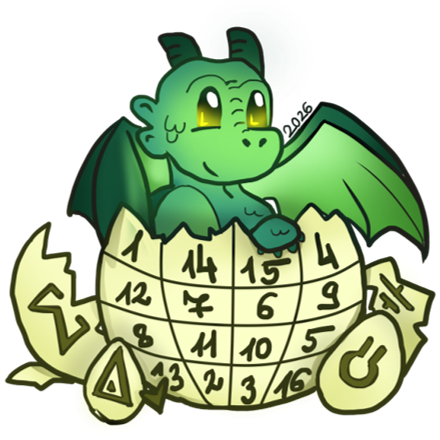International organisers
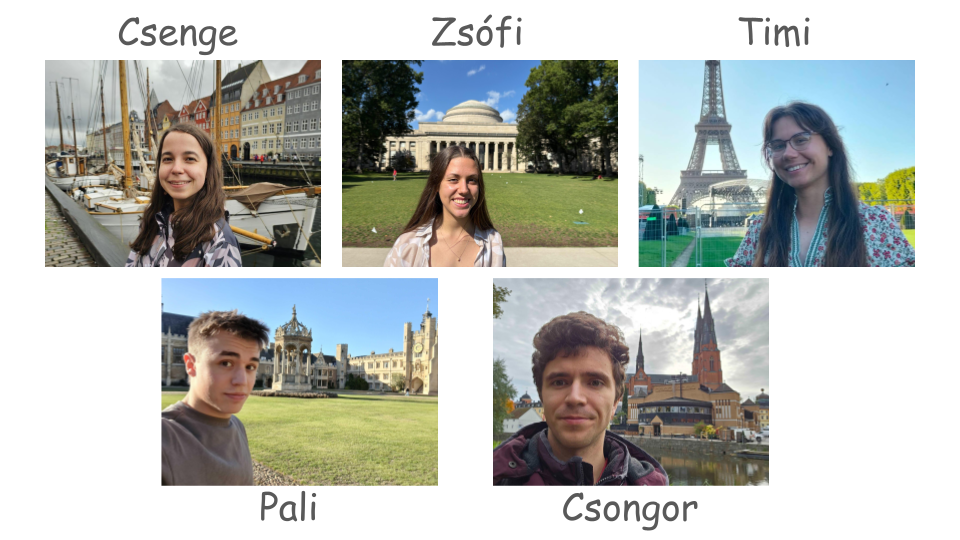
Csenge is leading this year’s international competition, marking her third year as an organiser. She continues to be part of the Hungarian organising team as well, where she is responsible for communicating with the students. Having recently begun her PhD studies, she enjoys trying new foods and taking canal tours in the city centre in her free time, whenever the weather allows.
Timi has been an organiser since her first year of university, being the main organiser of the maths competitions for two years before continuing her studies abroad. After leading the international competition for six years, she is back to being an ordinary member. In her free time she enjoys sports, spending time outdoors, singing and obviously doing maths.
Csongor is helping organize the international competition for the fourth year, but he has been an organiser since his first year of university. He was responsible for category C earlier while studying math in Hungary. Being a second year PhD student in Uppsala he has limited free time, but he likes spending it doing a wide variety of sports such as orienteering, volleyball or just being outdoor.
Zsófi has just joined the organizing team after four years as a competitor. She is a freshman at MIT and excited to stay involved from abroad after taking part in many international math events. When she’s not doing math or coding, she enjoys helping at camps, bouldering, and spending time with her frat:D
Pali participated in the competition multiple times during his high school years and has now become an organiser while beginning his studies at Cambridge. He has been involved with the international maths community through camps and competitions, and is looking forward to continuing to do so. In his spare time, he enjoys playing tennis or football, practising the piano, and meeting up with friends for a bouldering session.
Hungarian organisers
The organising team traditionally consists of young people, mostly university students studying maths. This dates back to the early years of the competition, and ever since then, we can regularly welcome former competitors as new organisers. The success of the competition depends on this community, consisting of 30 to 70 people. Some of them have been organisers for 10 years already (and still take part enthusiastically, even alongside a full-time job) and some of them take important responsibilities as first-year undergraduates already.
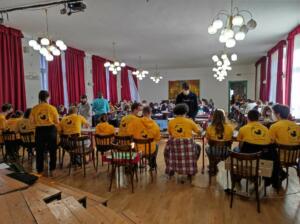
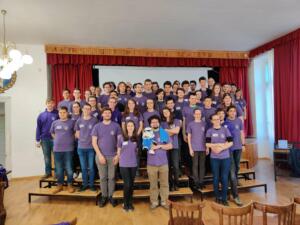
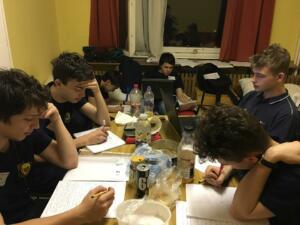
History
Plenty of mathematics contests are traditionally held in Hungary. From primary schoolers to university students, everybody can find a contest that fits their age and qualifications. These are mostly individual contests where the participants sit down in a room for a few hours, working on the problems quietly. However at the Dürer Competition, there are teams of 3 taking part. For the duration of the contest each team works together to solve the problems, so the contestants can experience the benefits of cooperative thinking. Our experience shows that the majority of students are happier and more relaxed than during an individual contest.
It is a very important goal for us to set interesting problems to show the beauty of mathematics and the joy of thinking to lots of students. We also wish to include as many original problems as possible. In each year, about 150 problems appear on the contest — of course not all can be original, but we invent most of the harder problems on our own.
